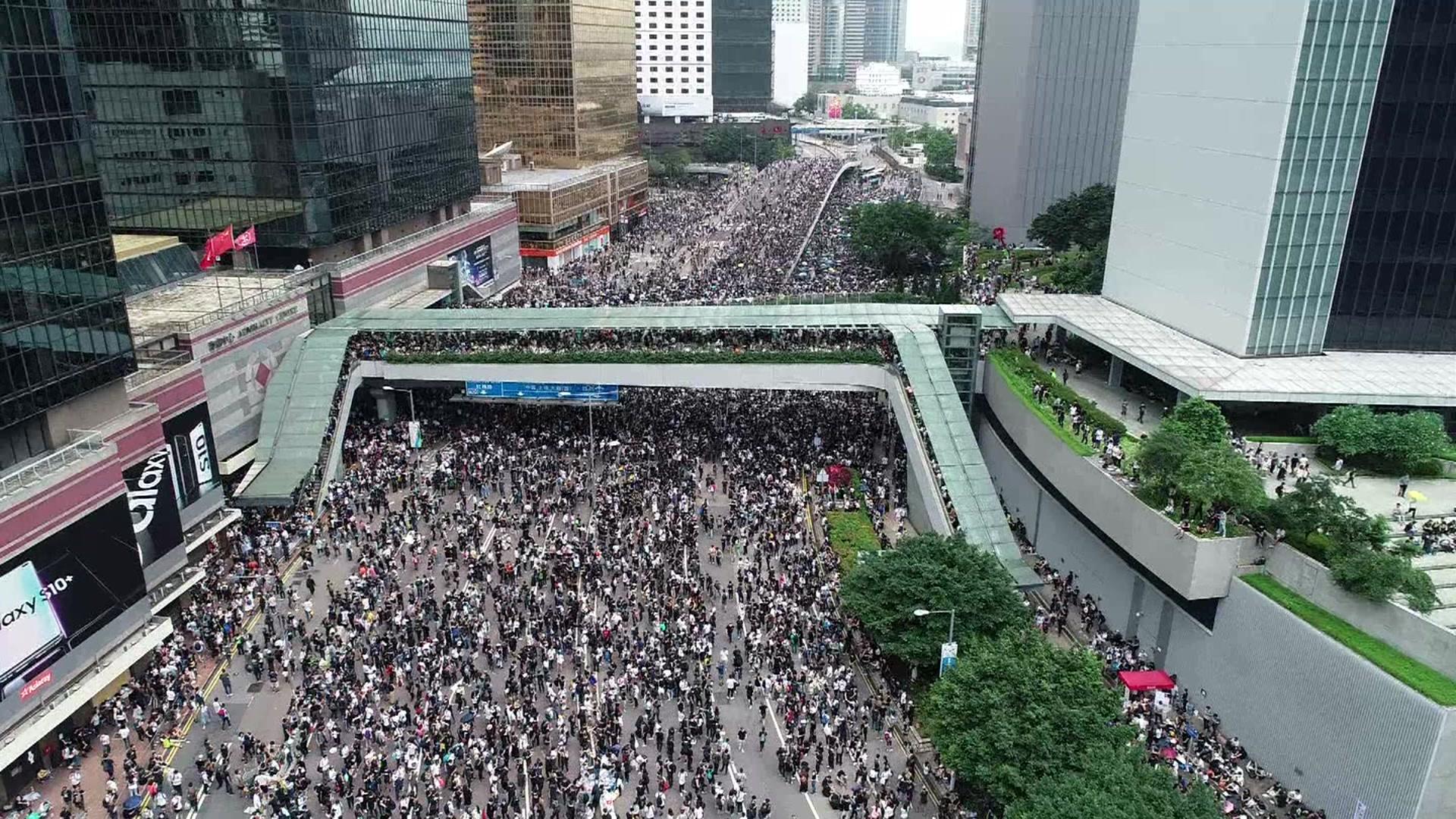Hong Kong protests: Carrie Lam sorry for extradition controversy
- Published
Mrs Lam said she personally had to shoulder much of the blame for the row
Hong Kong's leader Carrie Lam has apologised for an extradition bill that sparked mass protests, acknowledging it is now "unlikely" it will pass.
Millions have taken to the streets against the proposals, which would allow extradition to mainland China.
Protesters have been calling for the bill to be withdrawn and for Mrs Lam to resign.
Her speech did not promise either, but she said the bill would not be revived until people's fears were addressed.
Hong Kong has been part of China since 1997 under the "one country, two systems" principle, which allows it freedoms not seen on mainland China.
Critics say the legislation would expose people in Hong Kong to China's deeply flawed justice system and lead to further erosion of the city's judicial independence.
Mrs Lam suspended the bill last week, but Sunday saw the biggest protests yet, with organisers saying more than two million people turned out.
What did she say?
"I personally have to shoulder much of the responsibility. This has led to controversies, disputes and anxieties in society," Hong Kong's chief executive said.
"For this I offer my most sincere apology to all people of Hong Kong."
Asked by the BBC's Nick Beake why she had neither resigned nor withdrawn the bill, she said the fact that the bill was suspended showed she was listening.
Protests returned to Hong Kong streets following the suspension of the extradition bill
Mrs Lam said that unless the government was able to address concerns about the proposed laws "we will not proceed with the legislative exercise again".
She added that it was "very unlikely" the government could pass the bill before the current legislative session expires next year and "should that happen, the government will accept the reality".

A speech unlikely to quell the protests
By Helier Cheung, BBC News, Hong Kong
Ms Lam attempted to strike a conciliatory tone. In addition to apologising for her handling of the case, she said she understood that people were dissatisfied with her, and that she needed to "do better".
She also tried to connect with the young protesters who have been demanding she resign, saying she knew they "want a chief executive who listens to you".
However, protesters have reacted angrily to her press conference, saying that she's not met either of their demands: that she formally withdraw the bill, and step down as leader.
They also point out that she had plenty of earlier opportunities to apologise, or halt the bill, after the huge protests on 9 and 12 June.
Ms Lam, a former civil servant with little political experience prior to becoming chief executive, has long been accused of being out of touch with the public.
Her latest statement is unlikely to change this perception or placate protesters angered by the bill.

What's the response been?
Protest organisers said they were disappointed that Mrs Lam did not resign and said they would meet to decide on further action.
The prominent pro-democracy activist, Joshua Wong, who was released from jail yesterday, told the Wall Street Journal: , external"When one million people marched at least we got a suspension, when two million people marched all we got is a sorry. How many people does she want to drive to the streets?"
Abi, a 20-year-old protester who only wanted to be identified by her first name, told the BBC she saw Ms Lam's apology as "insincere".
"I still maintain that she should stand down. If she's asking for a second chance she should at least show that she's deserving of it, by withdrawing the bill amendments completely. We have no trust in her."
China has backed Mrs Lam and the extradition bill throughout the unrest.
- Published17 June 2019
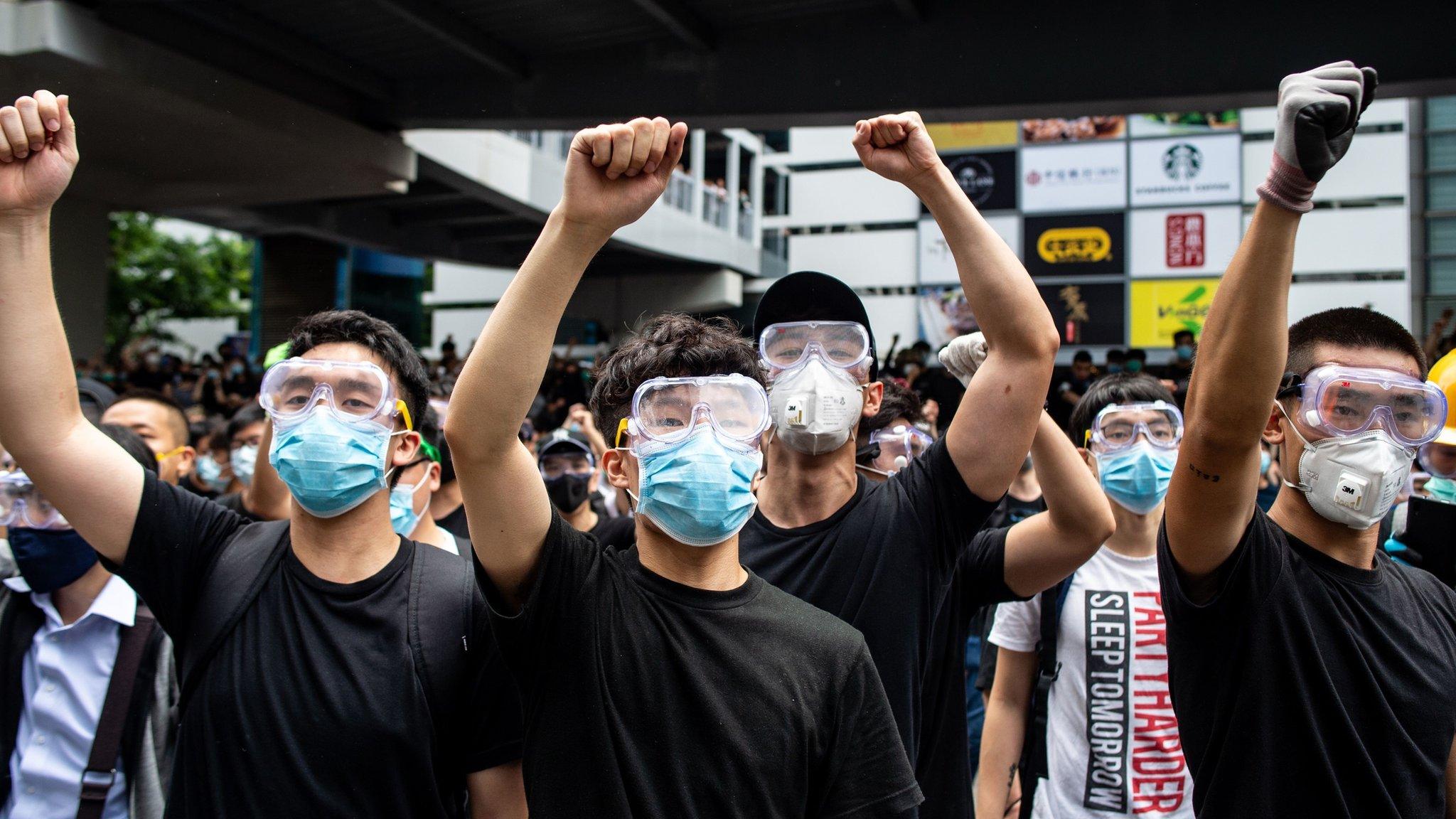
- Published17 June 2019
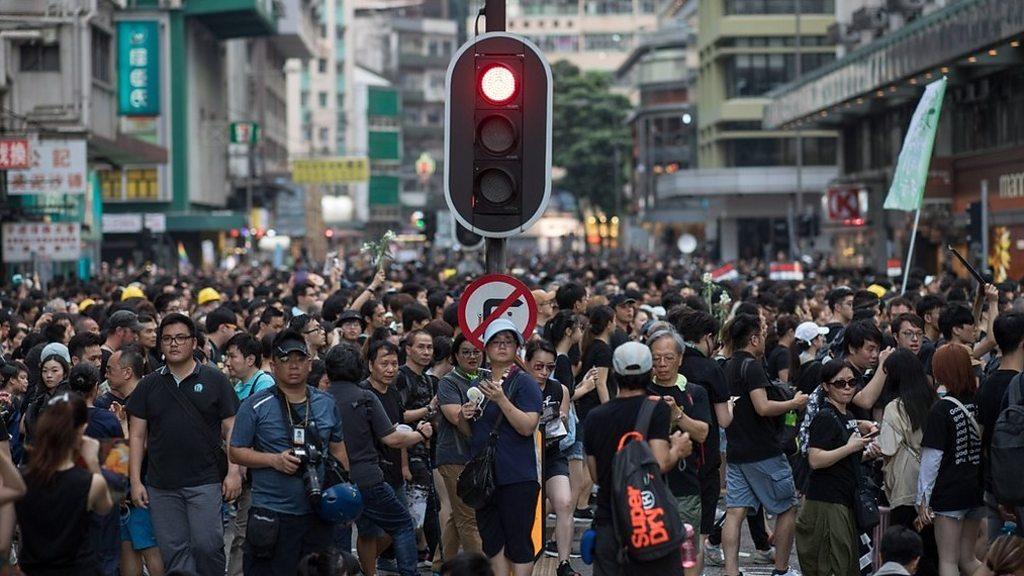
- Published15 June 2019
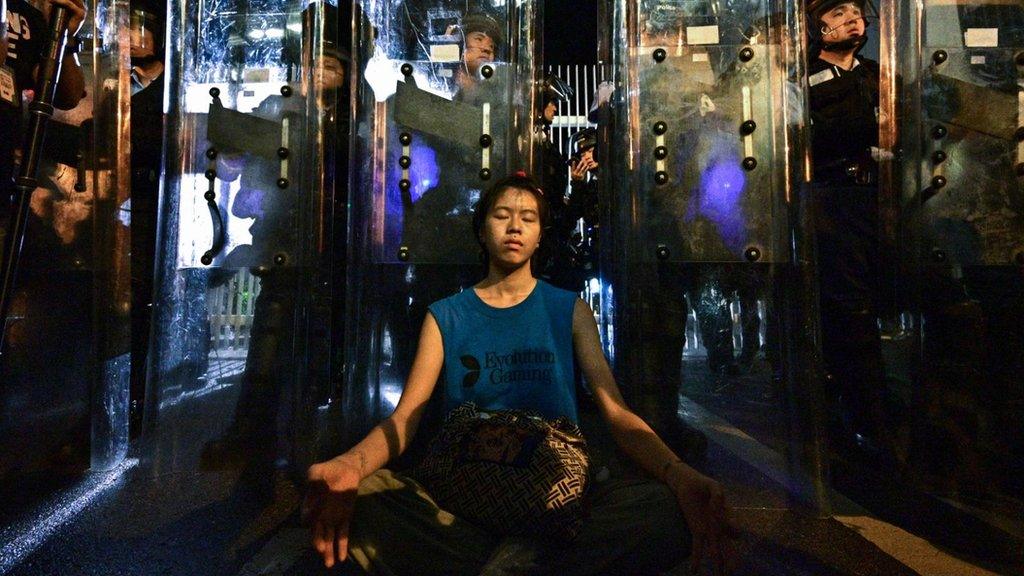
- Published21 May 2020
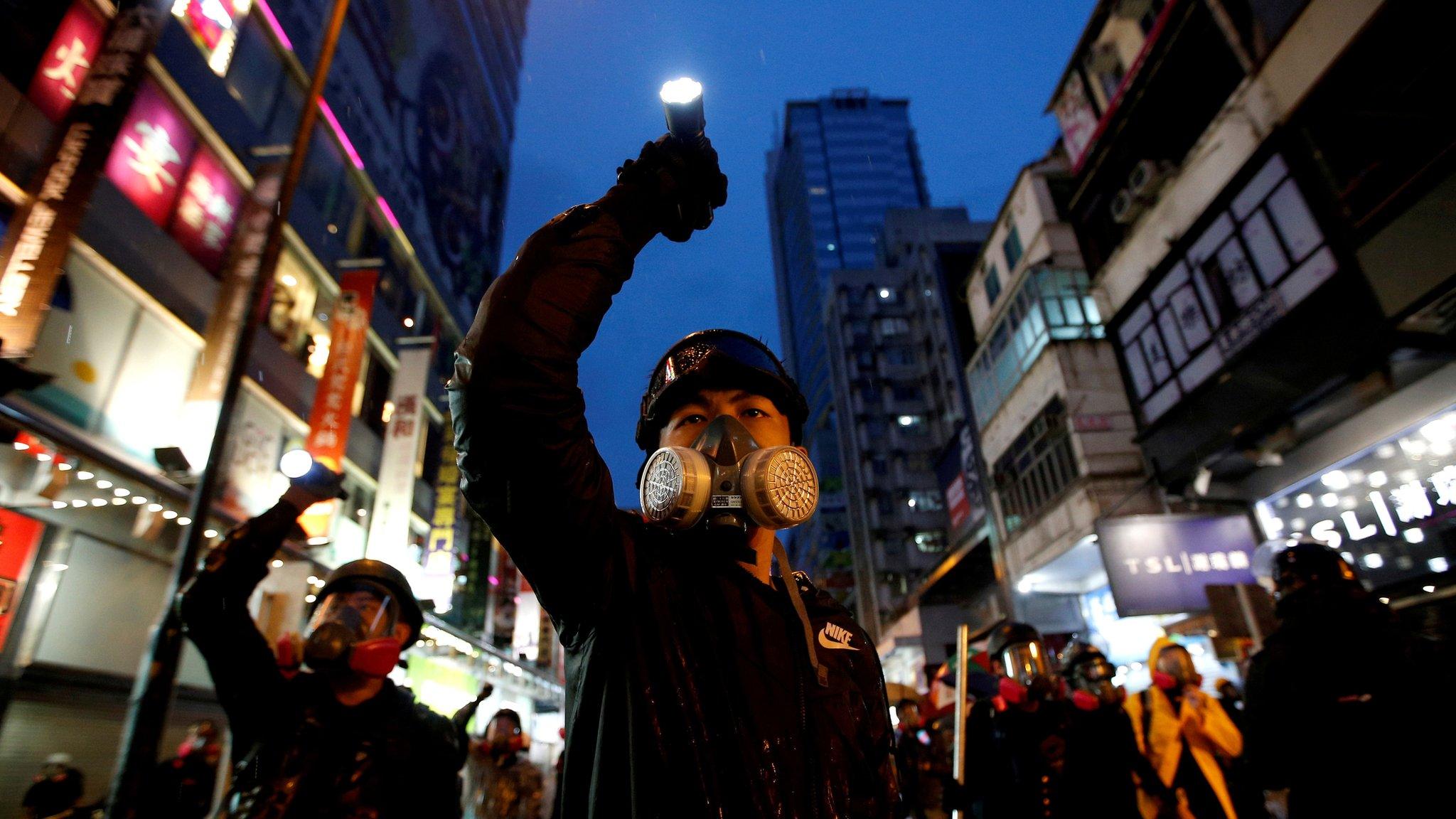
- Published16 June 2019
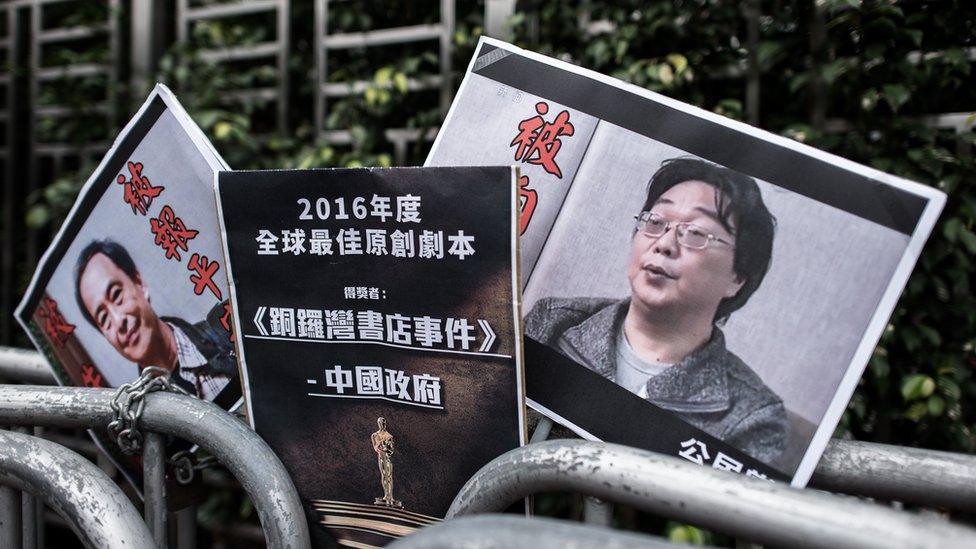
- Published15 June 2019
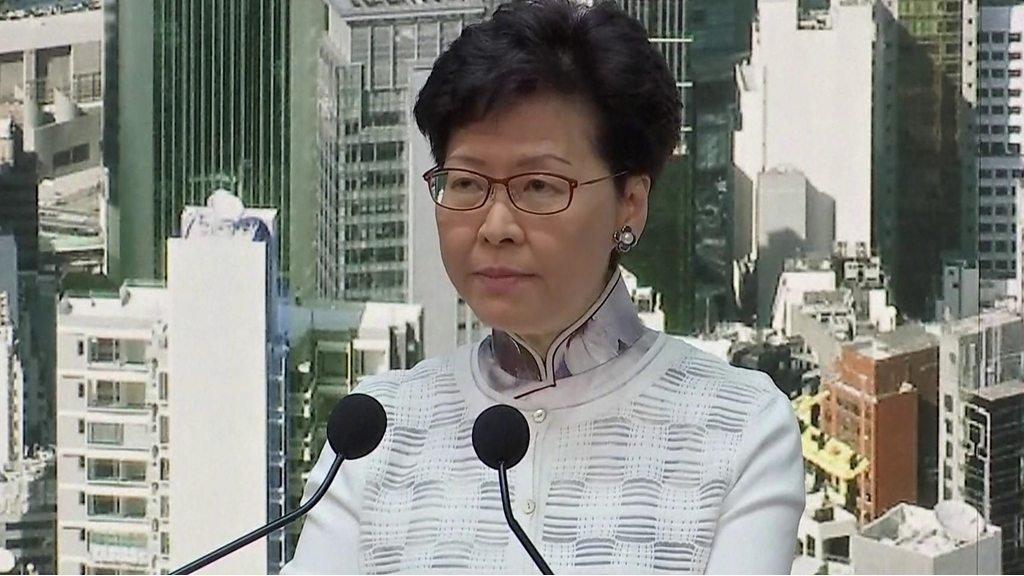
- Published13 June 2019
